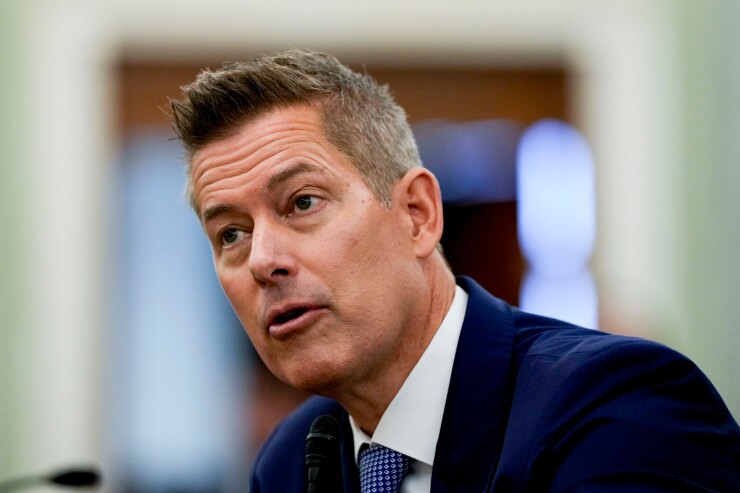
A federal judge ruled Tuesday that the Trump administration "blatantly overstepped" its authority when it tied federal transportation funds to states' immigration enforcement policies.
The
The "defendants have blatantly overstepped their statutory authority, violated the [Administrative Procedure Act], and transgressed well-settled constitutional limitations on federal funding conditions," McConnell wrote. "The Constitution demands the Court set aside this lawless behavior."
In April, Duffy
Previous administrations have sought to put their stamp on how federal infrastructure funds are spent, as seen most recently in the criteria under the Biden administration's Infrastructure Investment and Jobs Act and
But the Trump administration's efforts have rattled the municipal bond market with what
McConnell, who was appointed in 2011 by former President Barack Obama, ruled that the DOT exceeded its authority in imposing a requirement that states comply with U.S. Immigration Customers Enforcement in order to receive the transportation grants.
"Had Congress wished to try to make federal transportation funding contingent on cooperation with federal civil immigration enforcement, it could certainly have attempted to do so," the judge wrote. "Absent any clear indication of such an attempt, the court declines to find that DOT was vested with the sweeping power it asserts in setting a condition that is so obviously unrelated to the grant programs it administers."
In granting the states' summary judgement and denying the DOT's, McConnell ordered the IEC vacated from "all grant agreements" administered by the DOT, and permanently stopped the administration from attempting to condition federal transportation funding on state cooperation with federal immigration enforcement.
"If President Trump wants to stop losing in court, he should stop breaking the law," California Attorney General Rob Bonta said in a statement Tuesday. "The courts have repeatedly and firmly rejected the Trump Administration's efforts to infringe on states' constitutional right to set their own policy priorities."
The DOT did not respond to a request for comment.





